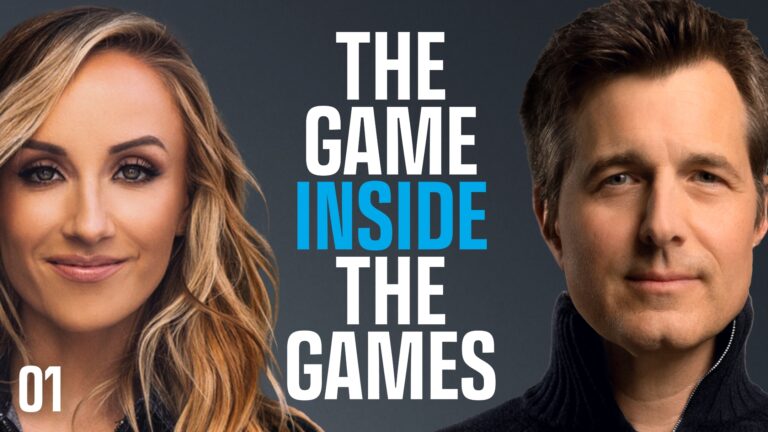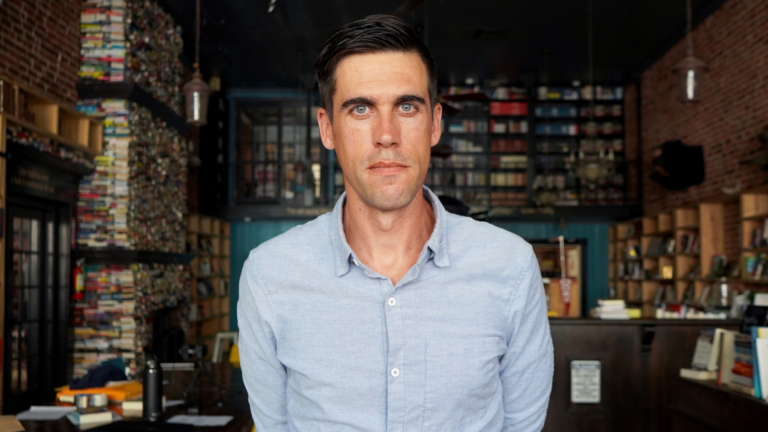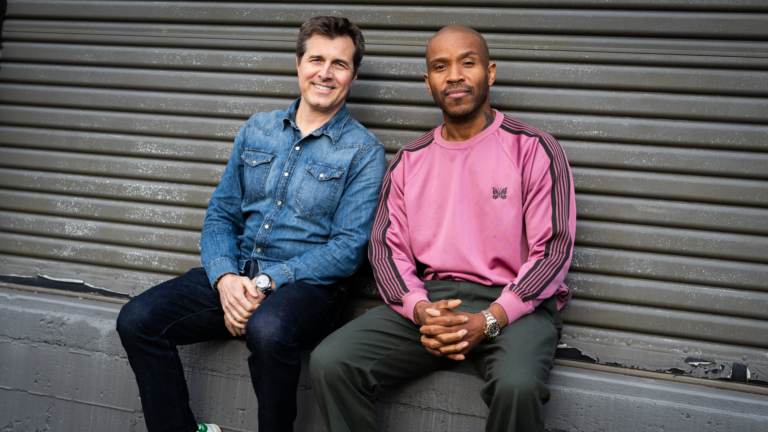This week, we’re really excited to share the sixth installment of our Ask Me Anything (AMA) series. It’s such a blast creating these and answering your questions.
On AMA #6, we dive into some very real topics like the power of pain as it ignites both purpose and growth, if narcissism is necessary for success, how underdogs make for good company, and why a simple question like “how are you?” helps us explore our relationship to our own authenticity.
For this AMA, I’m stoked to welcome back a dear friend of Finding Mastery’s — actor, improv artist, and host of his own podcast, O’Neil Cespedes. O’Neil dropped by to bring his curiosity and candor to a really awesome conversation.
It’s an incredible honor to answer the questions you’re all sending in, and they continue to lead us to some extremely rich and insightful places. As always, feel free to email info@findingmastery.net with feedback or any questions you may have for future AMAs.
“Remind yourself: This is what you want. You want to swim in deeper waters. You want to go a little faster than you once did. This is cool. This is what you’re about, and you figure shit out. You can do hard things.”
In This Episode:
Saving face (O’Neil)
I could be going through the worst thing, but the minute I step through the door and I see you and the whole crew, whoever the crew is, I’m putting on this mask. And the whole goal is to not let you know that I’m going through anything painful because I don’t want to be judged. I don’t want to reveal something so vulnerable because it makes me vulnerable, and I just want to save face. So I’m going to come through the door, I’m going to laugh, and I’m going to joke, I’m going to mask it in any way I possibly can.
Shed the armor (Dr. Mike)
There’s a classic book, I don’t know if you’ve ever read this book. It’s not well written, and it’s pretty obscure. It’s called The Knight in Rusty Armor. The idea is that we are like knights with this heavy armor and we’re constantly shining the armor. And we’re having to keep it up and oil it and put all the right wax on it. And it’s exhausting to carry it because it’s heavy. It’s exhausting to manicure it and keep it kept well so it looks nice. It’s exhausting. When really, what’s wrong with moccasins? And what’s wrong with some flip-flops? Or what’s wrong with some sandals and a little bit lighter… Shed the armor, and a lighter way of going through life. And so that’s the premise that they make up from armor, like the knight in shining armor.
Being vulnerable through art (O’Neil)
What’s interesting about that whole thing is we tend to hide our pain and we shine our armor up as much as we possibly can, but we’re fascinated by true vulnerability when we see it expressed in an artistic way. I want the messed up person on screen because they’re expressing themselves in a way that I wish I could express myself. I want this damaged, dark artist singing the song because they’re singing in this moody way that I may have felt on a few occasions or many occasions, but I’m afraid to express it. So we marvel at it when we see it presented to us in a theatrical way. But when it comes to really performing it or really doing it, we’re like, no, I’m good.
Working from the inside-out (Dr. Mike)
Let’s use a framework that I’ve found to be useful outside in and inside out. So the outside in is the environment that she’s talking about. So all of the environmental conditions. And when we put ourselves in a position to focus on outside in, we’re de-levered. So we don’t have as much leverage as if we can focus on the things that are inside out, which is our own responses or psychological skills. So inside out, outside in, she’s already hinting at that question which is like, I don’t see the external changing, so how can I increase my leverage on paying attention to the internal?
Purpose vs. pain (Dr. Mike)
When your purpose is really clear, you can work through just about any pain. And so whatever the external triggers are for the internal pain, when your purpose is really clear, you can work through it. But when your purpose is not big enough or clear enough, pain wins.
Flex culture and narcissism (Dr. Mike)
We’re in a culture right now where people flex a lot. And that flex is, “Look at me!” And so we’re throwing around medical terms, psychologically researched and well understood terms, casually. And so there’s a difference here. So part one is we’re in a world in a context where people are looking at themselves a lot and sharing the best versions of themselves publicly. And I think the reaction is, why we’re using that word so much because we’re having a reaction saying, I’m exhausted, and I think a lot of people are attending to the highlight reels of others and not getting to the real stuff. So what’s the quickest thing we can grab? Is the phrase narcissism. And so it’s like I’m anxious. Well, it’s born out of clinical anxiety. Is it clinical anxiety we’re talking about or is it nervousness? And there’s a difference. Same with NPD, narcissistic personality disorder, narcissism and selfishness. They’re different and they can coalesce together, but they’re different.
Dr. Mike’s most challenging experience, professionally
As a theme, it is not knowing if I have what it takes. So as a theme, it is feeling like I don’t have the requisite abilities to be myself authentically in any environment. So that’s generally the theme. And that shows up less than it ever did, but it showed up a lot when I was younger. And so the greatest professional disappointment was the cost of my intimate love life. So the selfishness that I experienced in my ambition to build something professionally cost me greatly in my personal life with my wife. And so it’s the regret there that I have that is the biggest sting.
The underdog (O’Neil)
Why is it that we see and hear stories all the time of people that were not picked on their basketball high school team, Michael Jordan, or a person that had to sleep on mattresses in the alley? We hear all these stories of these underdogs all the time. It’s almost cliche to me. I almost feel like if you’re an underdog, you’re just being set up for something great because you’re in good company, as they say. Most people that are mad successful are underdogs. So why is it if that’s the case, do we still get down like you got down when you were excluded from being called back for the second time? Knowing in the back of our heads that, man, if I’m an underdog, there’s a million underdogs that made it happen. And usually this is the thing that sparked the flame.
Awareness as an unlock (Dr. Mike)
If you want to live in the present moment more often, I would start with mindfulness. Become intimately aware of how triggers influence your thoughts and how once you get on a thought train, it takes you down a path. Become great at understanding that, and that would be a significant unlock.
Imposter syndrome (Dr. Mike)
Welcome to the club. Especially for people with a value for and ambition to get better. And there’s knowing that you do need to go a little bit faster on your skis, let’s say, than you’re comfortable to find that next level. Or you need to go into a bigger pond and swim in colder water or deeper depths. I love when people recognize that they have imposter syndrome because it’s like, oh, I see you. I see that you have a drive and an ambition, and you just really want to get better and you’re not sure if you have what it takes. I see you in that and I go, oh my God, this is so refreshing because one you’re calling out and you’re being honest.
Problems when facing imposter syndrome (Dr. Mike)
The first problem with imposter syndrome, is that you’re giving that person or them, imaginarily so, a lot of power. The second is you’re abandoning your body of work. So when you start to question like do I, do I, if you can’t quickly have, well, I’ve done this, this, and this and this and I’m good at that, that, and that and that, then you’re abandoning your whole body of work. Why? Because of what they might think of you. So when somebody is feeling that imposter thing, my hope is that they go right. That’s right, because I’m trying to get after it and I’m stepping into a new territory. And I don’t have all the answers for this room necessarily, but I’m going to give it my best go. So if you can get to that place, recognize like, ooh, I feel a little rattled. And then take care of yourself by reminding yourself that this is what you want. You want to swim in deeper waters. You want to go a little faster than you once did. This is cool. This is what you’re about, and you figure shit out. If you can take care of yourself that way, I think it’s great.
Confidence and self-talk (Dr. Mike)
Confidence is one of the great cornerstones for all humans, is to know how to back yourself. And if you think that other people’s opinions are really big, it leaves the opportunity for you to feel small. So you can down-regulate how important their opinion is of you. You can up-regulate your vision of what you see as possible. You can up-regulate your purpose, with great clarity what your purpose is. And then you can ridiculously create such a challenging environment that you’re testing yourself at your limit every day, that you’re really building some serious skills. And then to round the whole thing out, you’re working on how you speak to yourself, your self-talk. That little formula there, if you’re a parent listening and you can help your child understand that, awesome.
Pain is why we change (Dr. Mike)
The first order of business is to feel the pain. Pain is why we change. And if we’re constantly shape-shifting, and we’re constantly drinking or drugging or doing whatever to numb the pain that we feel, then we never get to the change that we want. So when we can feel pain, the pain of walking around scared of what they might think. When we feel that pain of that disconnection from our deeper self, then we start to say, oh, okay, there’s a change that I need to make, or I just need to figure out how to numb the pain, or I’m just going to accept that this is my way. And so it’s really the first order of business is to sit with the pain. And that’s so uncomfortable, that is what creates the change. So pain is why we change. Uncomfortableness is how we grow. And when you can square up with that pain, you’ll figure out like, okay, man, I’m getting whipped around by what they might think. And who am I? It’s one of the reasons it’s one of the most foundational questions in meditation. Who am I? And I mean really answer that question.



